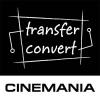-
Posts
642 -
Joined
-
Last visited
About JohnBarlow

Profile Information
-
Gender
Male
-
Location
Liverpool, England
Contact Methods
-
Website URL
http://www.transferconvert.co.uk/cinemania
Recent Profile Visitors
3,890 profile views
JohnBarlow's Achievements

Frequent member (4/5)
167
Reputation
-
 Ian Edward Weir reacted to a post in a topic:
My Chrestien has ball bearings :)
Ian Edward Weir reacted to a post in a topic:
My Chrestien has ball bearings :)
-
 Junior reacted to a post in a topic:
Introducing Rectilux FF Single Focus Adapters (Rectilux 5FF, Rectilux 7FF & Rectilux 9FF Announced)
Junior reacted to a post in a topic:
Introducing Rectilux FF Single Focus Adapters (Rectilux 5FF, Rectilux 7FF & Rectilux 9FF Announced)
-
 valery akos reacted to a post in a topic:
NEW!! Scorpiolens Anamorphic Prime Lenses
valery akos reacted to a post in a topic:
NEW!! Scorpiolens Anamorphic Prime Lenses
-
Ian Edward Weir started following JohnBarlow
-
 Junior reacted to a post in a topic:
Introducing Rectilux FF Single Focus Adapters (Rectilux 5FF, Rectilux 7FF & Rectilux 9FF Announced)
Junior reacted to a post in a topic:
Introducing Rectilux FF Single Focus Adapters (Rectilux 5FF, Rectilux 7FF & Rectilux 9FF Announced)
-
 Junior reacted to a post in a topic:
Introducing Rectilux FF Single Focus Adapters (Rectilux 5FF, Rectilux 7FF & Rectilux 9FF Announced)
Junior reacted to a post in a topic:
Introducing Rectilux FF Single Focus Adapters (Rectilux 5FF, Rectilux 7FF & Rectilux 9FF Announced)
-
 Junior reacted to a post in a topic:
Introducing Rectilux FF Single Focus Adapters (Rectilux 5FF, Rectilux 7FF & Rectilux 9FF Announced)
Junior reacted to a post in a topic:
Introducing Rectilux FF Single Focus Adapters (Rectilux 5FF, Rectilux 7FF & Rectilux 9FF Announced)
-
 valid reacted to a post in a topic:
Introducing Rectilux FF Single Focus Adapters (Rectilux 5FF, Rectilux 7FF & Rectilux 9FF Announced)
valid reacted to a post in a topic:
Introducing Rectilux FF Single Focus Adapters (Rectilux 5FF, Rectilux 7FF & Rectilux 9FF Announced)
-
 Liszon reacted to a post in a topic:
Introducing Rectilux FF Single Focus Adapters (Rectilux 5FF, Rectilux 7FF & Rectilux 9FF Announced)
Liszon reacted to a post in a topic:
Introducing Rectilux FF Single Focus Adapters (Rectilux 5FF, Rectilux 7FF & Rectilux 9FF Announced)
-
FLOATING ZONE FOCUS EXPLAINED Nikon calls this Close Range Correction and Canon calls it Floating Element, so for the sake of accuracy Rectilux calls it Floating Zone Focus. Back in the day, when lenses were focused by moving the whole cell forward and back from the film plane, it was noticed that when close focused, the image quality suffered. For example, it is usually found that say a vintage 135mm lens would typically be limited to 1.5m close focus for this reason. Nikon found that by shuffling the distance between lens elements, using a mechanical cam system that they could tighten up the dispersion of the imaging rays to give much improved close focusing capability. Rectilux does the same thing but manually as detailed below. As you know Rectilux 3FF-W will focus from 0.6m to infinity when the anamorphic and taking lenses are simultaneously set to infinity. Call this configuration ‘INF-INF’ Now say you are on set and the shot list says you don’t need to focus on anything beyond 5m. Just set your anamorphic and taking lenses simultaneously to 5m. Call this configuration ‘5-5’. Thus 5m is the new infinity and means that you can shoot from 5m down to much closer than 0.6m (I will leave you to do the calculation) and the close shots will be much crisper than the configuration ‘INF-INF’. Of course the whole stroke is available to you, so much precise focus is easily obtained. Now say you have a romantic candlelit dinner scene. You want lots of bokeh and also want to use it to blot out background distractions. Storyboard calls for reverse head shots and you tell your AC to configure Rectilux to ‘2-2’, meaning set the anamorphic and taking lenses simultaneously to 2m, so now 2m is the new infinity and gives you very close focus capability, so that when the guy proposes and puts the engagement ring on his GFs finger you are there to scoop it up, filling the frame with this shot. I suspect now you will come to realise the additional advantage of the quick change system, enabling you or your AC, to quickly remove the scope and set it to the desired ‘X-X’ configuration and put it back ready to shoot.
- 179 replies
-
- Vintage Digital Remastered
- Floating Zone Focus
- (and 5 more)
-
 richg101 reacted to a post in a topic:
Introducing Rectilux FF Single Focus Adapters (Rectilux 5FF, Rectilux 7FF & Rectilux 9FF Announced)
richg101 reacted to a post in a topic:
Introducing Rectilux FF Single Focus Adapters (Rectilux 5FF, Rectilux 7FF & Rectilux 9FF Announced)
-
 JohnBarlow reacted to a post in a topic:
Introducing Rectilux FF Single Focus Adapters (Rectilux 5FF, Rectilux 7FF & Rectilux 9FF Announced)
JohnBarlow reacted to a post in a topic:
Introducing Rectilux FF Single Focus Adapters (Rectilux 5FF, Rectilux 7FF & Rectilux 9FF Announced)
-
Rudolf agreed, the weather in N. Europe is miserable at the moment. Best to wait for the sunshine
- 179 replies
-
- Vintage Digital Remastered
- Floating Zone Focus
- (and 5 more)
-
 JohnBarlow reacted to a post in a topic:
Introducing Rectilux FF Single Focus Adapters (Rectilux 5FF, Rectilux 7FF & Rectilux 9FF Announced)
JohnBarlow reacted to a post in a topic:
Introducing Rectilux FF Single Focus Adapters (Rectilux 5FF, Rectilux 7FF & Rectilux 9FF Announced)
-
Here we have a superimposed 2D cartoon/xray section of the inside of Rectilux 3FF-W, Rectilux 3FF-S is similar. The point of showing this, is that 3FF series come with quick change coupling rings that when fixed to the scopes allow easy screw in at the mating thread 1 and also further supported at the rear 2 by three bolts which pass through the casing , through the rear coupling ring and onto the scope. This guarantees <0.1mm centricity with the optical axis, every time you swap over scopes for different looks. A simple yet nevertheless elegant engineering solution...
- 179 replies
-
- Vintage Digital Remastered
- Floating Zone Focus
- (and 5 more)
-
Hi Oz as Tito and Zak said...
- 179 replies
-
- Vintage Digital Remastered
- Floating Zone Focus
- (and 5 more)
-
Hi Rudolf, If you can swing it and at least get the Patent reference numbers that would be great, actual documents would be Faboo!
- 179 replies
-
- Vintage Digital Remastered
- Floating Zone Focus
- (and 5 more)
-
 JohnBarlow reacted to a post in a topic:
Introducing Rectilux FF Single Focus Adapters (Rectilux 5FF, Rectilux 7FF & Rectilux 9FF Announced)
JohnBarlow reacted to a post in a topic:
Introducing Rectilux FF Single Focus Adapters (Rectilux 5FF, Rectilux 7FF & Rectilux 9FF Announced)
-
 JohnBarlow reacted to a post in a topic:
Introducing Rectilux FF Single Focus Adapters (Rectilux 5FF, Rectilux 7FF & Rectilux 9FF Announced)
JohnBarlow reacted to a post in a topic:
Introducing Rectilux FF Single Focus Adapters (Rectilux 5FF, Rectilux 7FF & Rectilux 9FF Announced)
-
 JohnBarlow reacted to a post in a topic:
Introducing Rectilux FF Single Focus Adapters (Rectilux 5FF, Rectilux 7FF & Rectilux 9FF Announced)
JohnBarlow reacted to a post in a topic:
Introducing Rectilux FF Single Focus Adapters (Rectilux 5FF, Rectilux 7FF & Rectilux 9FF Announced)
-
 JohnBarlow reacted to a post in a topic:
Introducing Rectilux FF Single Focus Adapters (Rectilux 5FF, Rectilux 7FF & Rectilux 9FF Announced)
JohnBarlow reacted to a post in a topic:
Introducing Rectilux FF Single Focus Adapters (Rectilux 5FF, Rectilux 7FF & Rectilux 9FF Announced)
-
 JohnBarlow reacted to a post in a topic:
Introducing Rectilux FF Single Focus Adapters (Rectilux 5FF, Rectilux 7FF & Rectilux 9FF Announced)
JohnBarlow reacted to a post in a topic:
Introducing Rectilux FF Single Focus Adapters (Rectilux 5FF, Rectilux 7FF & Rectilux 9FF Announced)
-
 JohnBarlow reacted to a post in a topic:
Introducing Rectilux FF Single Focus Adapters (Rectilux 5FF, Rectilux 7FF & Rectilux 9FF Announced)
JohnBarlow reacted to a post in a topic:
Introducing Rectilux FF Single Focus Adapters (Rectilux 5FF, Rectilux 7FF & Rectilux 9FF Announced)
-
 JohnBarlow reacted to a post in a topic:
Introducing Rectilux FF Single Focus Adapters (Rectilux 5FF, Rectilux 7FF & Rectilux 9FF Announced)
JohnBarlow reacted to a post in a topic:
Introducing Rectilux FF Single Focus Adapters (Rectilux 5FF, Rectilux 7FF & Rectilux 9FF Announced)
-
Rudolf, The special quality of Moller is there to be seen. Incidentally, I contacted Moller Wedel about two years ago, maybe 3 or 4 times by email, to discuss the expired patents on their old products, but I never got a response. I was thinking of remaking them, with their blessing of course. Maybe a bit bigger for faster taking lenses. I could separate the glass in one but I hate to butcher vintage lenses.
- 179 replies
-
- Vintage Digital Remastered
- Floating Zone Focus
- (and 5 more)
-
 JohnBarlow reacted to a post in a topic:
Introducing Rectilux FF Single Focus Adapters (Rectilux 5FF, Rectilux 7FF & Rectilux 9FF Announced)
JohnBarlow reacted to a post in a topic:
Introducing Rectilux FF Single Focus Adapters (Rectilux 5FF, Rectilux 7FF & Rectilux 9FF Announced)
-
Yes Stu, Form, fit and function from design through to final product. There is no need to remove the focus ring from your anamorphic lens, and besides, it is imperative that this is not done, for how else can the minute adjustments be made for precise infinity focus? You will see from the brochure that Rectilux 3FF series also feature infinity adjustment screws because every designer would know that some scope/ taking lens combinations can experience changes to the back focus during close focusing. In short Rectilux can be tuned to your favourite lenses. Without the anamorphic focus ring, this function goes out the window. My focus is on Rectilux, Stu, what happens to other products is not my concern. Thanks and you will, birds in flight
- 179 replies
-
- Vintage Digital Remastered
- Floating Zone Focus
- (and 5 more)
-
I have never considered a Moller 32 to be an underrated adapter, I think all Moller scopes are excellent. Do you remember I helped you solve your filter problem you had with your 32 Rudolf? How is that working out for you? Rudolf, I think you are in the wrong thread, 3FF-S is not heavy, requires no rails, no sticks and no sidewalk permit and you can swap out the 32 to the 8/19 in less than a minute using the quick change system Please show me how you rack focus with the double focus Moller Rudolf. I like to learn new tricks. Rudolf, earlier you spoke about interesting footage, can you please share your Vimeo or You Tube account so I can see some examples of what you mean?
- 179 replies
-
- Vintage Digital Remastered
- Floating Zone Focus
- (and 5 more)
-
More news from Rectilux... The Carl Zeiss Rathenower 48/2x will be added to the list of 3FF-W supported scopes in the spring, bringing the total of precision support for scopes to 8 including all the minor variations. More details to come 4 DAYS TO GO! The lightweight 3FF series truly are weapons oFMass destruction.
- 179 replies
-
- Vintage Digital Remastered
- Floating Zone Focus
- (and 5 more)
-
5 DAYS TO GO! The lightweight 3FF series truly are weapons oFMass destruction.
- 179 replies
-
- Vintage Digital Remastered
- Floating Zone Focus
- (and 5 more)
-
Hi Oz, The firm introductory prices are found in this download brochure : http://www.transferconvert.co.uk/cinemania/Rectilux3FFBrochureV2.pdf Bolex body glove prices are the same. The Bolex body glove is proving to be very popular. The hooded Cinelux would need to be modded to remove the hood and for reasons stated in the Schneider brochure above, I am advising my customers to swap out to the ES version as the cost would be less and you end up with a much better optic which has extra 15% FOV, and they are happy to do this. Its all about getting close to the focusing optics, which all my products do as standard, to completely avoid issues like ghosts and internal reflections in contra lighting conditions.
- 179 replies
-
- Vintage Digital Remastered
- Floating Zone Focus
- (and 5 more)
-
More News from Rectilux... For information I have made available for download, the Schneider Kreuznach brochure on the ES Cinelux Anamorphic 2X MC that I have kept in my archives from the period here: http://www.transferconvert.co.uk/cinemania/ESanamorpH.pdf The brochure has a paragraph as follows: "The performance of any lens is determined by the type and quality of the glass used, the elegance of the lens design, and the quality control and skill used in the manufacturing process. The number of elements in a lens design doesn't determine lens quality or performance, it's how well these elements are made and combined, that does." Those who have been following the development of Rectilux, the original single focus attachment for anamorphic projection lenses, will know that this statement is in perfect harmony with Rectilux design philosophy and manufacturing processes. Consequently, I truly believe that the only available single focus attachment which is capable of unleashing the performance of this remarkable optic is the one you see here. The introductory offer for batch 1 Rectilux 3FF-W will close on February 10 2015. If you want a Rectilux 3FF-W quickly, don't forget the bus will leave on this date.
- 179 replies
-
- Vintage Digital Remastered
- Floating Zone Focus
- (and 5 more)
-
The earlier post on the focusing performance was mistakenly quoted for the Version 1 product. Version 2 of Rectilux 3FF-W is as follows: 3FF-W has a Focus throw of 170 degrees (less than 1/2 a turn) from 0.6m to infinity, the stroke is 21mm from 0.6m to infinity One third of the above is devoted to the close range 0.6m to 1m, which means that the Focus throw is 117 degrees (less than 1/3 turn) from 1m to infinity, the stroke is 14mm from 1m to infinity.
- 179 replies
-
- Vintage Digital Remastered
- Floating Zone Focus
- (and 5 more)
-
@proctor you can find the sketch here http://www.transferconvert.co.uk/cinemania/HOW SINGLE FOCUS ANAMORPHIC ATTACHMENTS WORK.pdf best
- 179 replies
-
- Vintage Digital Remastered
- Floating Zone Focus
- (and 5 more)







